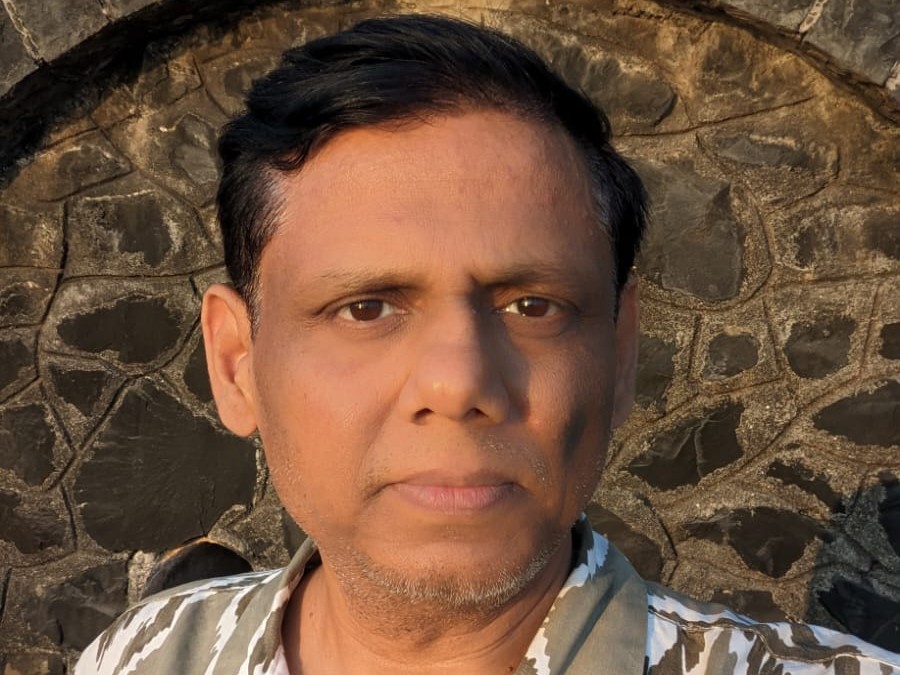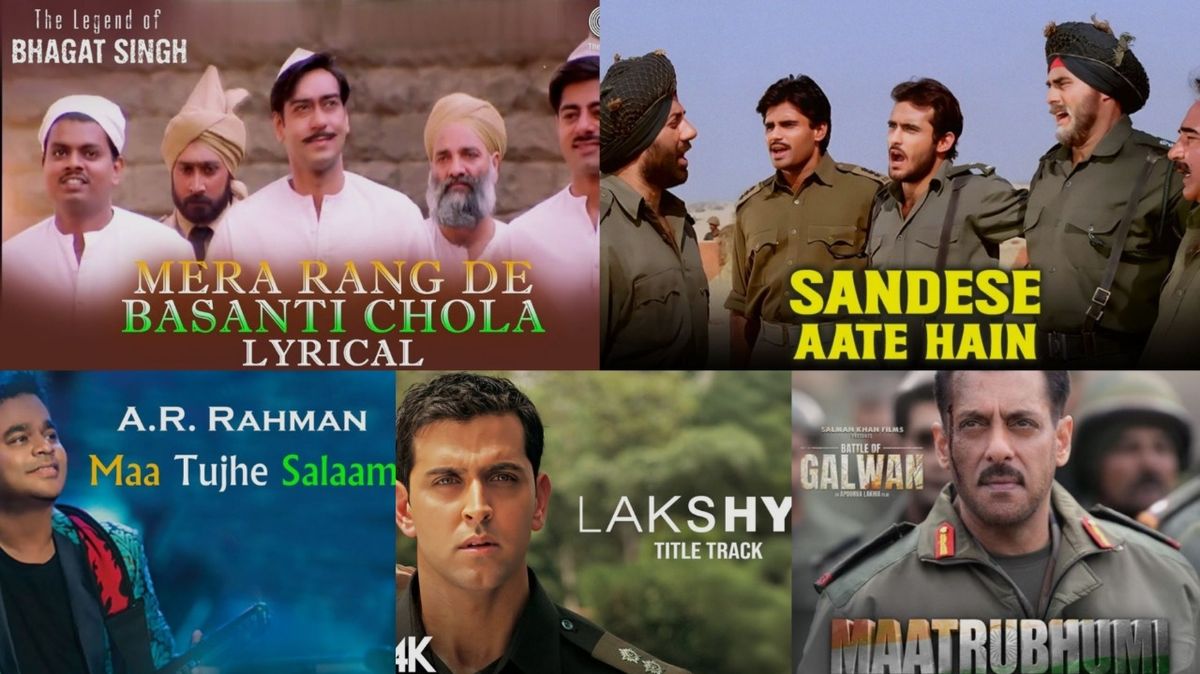
“A post producer is the last man standing on a film project” – Prashen Kyawal
A couple of years ago, Prashen Kyawal decided to quit his career as an IT professional and venture into the world of cinema. Though he had to go through the grind initially, his persistence soon paved the way for opportunities that enabled him to showcase his skills as a creative producer and post-producer. Over the years, Prashen has worked on several notable films and shows including ‘Rakkosh’, ‘Chhorii’, ‘Kathal’, ‘Gutar Gu’, ‘Dear Father’, ‘Kill’ and ‘Gyaarah Gyaarah’. ‘Yo Yo Honey Singh: Famous’, a Netflix documentary on the Indian rapper which started streaming a couple of months ago, has been his latest project as a post-producer.
While ‘Kill’ has won several awards in multiple categories at the IFFA Digital Awards, ‘Yo Yo Honey Singh: Famous’ won the Best Docu-Feature Award at the same ceremony.
In this interview, Prashen talks about why making a documentary on Yo Yo Honey Singh was important, the increasing popularity of documentaries, the kind of responsibilities a post-producer takes up, long-standing association with Sikhya Entertainment, upcoming projects and more.
Yo Yo Honey Singh has been a polarising figure. While he has a legion of fans, there have been some vocal critics as well. Nobody, however, can deny the fact that his work and personality have had a strong cultural impact. Do you think that was the reason why a documentary on him was made?
Stories are told when there is some content or substance. Somebody would want to make a documentary on a subject for various reasons. In the last few years, one has witnessed this trend of documentaries being made on music icons. Perhaps, that was the reason why Netflix decided to make a documentary on Yo Yo Honey Singh. In the fiction space, too, one has seen a lot of content being made on music stars. In his heyday, Honey Singh changed the music scene completely. He created a storm of sorts between 2007 and 2014. He introduced a new genre in the form of desi hip-hop. The beats were catchy and the lyrics were grounded. While one had seen rappers earlier, his style was unique and one-of-its-kind.
Those who were in their teens or early ‘20s connected to his music in a big way. Around that time, India was witnessing a strong economic growth and the purchasing power of the people in the country was increasing. He was extremely talented and also benefited by doing the right thing at the right time. Bringing his story to the fore was very important because of the mental health crisis he went through. There have been many controversial artists. They would say the truth, in an uninhibited manner, through their art. However, Honey’s story had several layers to it. His personal journey was very interesting. He dealt with a mental health crisis, witnessed extreme downfall and managed to make a comeback. The mental health section of the documentary is very educational for a common man.
In the documentary, one saw him being vocal about a lot of things he went through. Most celebrities would refrain from talking about these things publicly. He was basically telling the world about his mistakes and urging them not to go down that path. He was imploring the younger generation to avoid doing such things. Back in the day, his songs about alcohol, sutta etcetera might have influenced young people. He has acknowledged it and therefore, he is using his influence to tell them to avoid drugs and other intoxicants.
Because of streaming platforms, more people in India are watching documentaries now.
Yes! Non-fiction was a festival-centric thing in India for the longest time. Unless people took some effort and rented out DVDs or downloaded them from pirated sites, they would not get to watch documentaries. Now, streaming platforms are releasing documentaries. The non-fiction section on Netflix is quite big. I firmly believe that consuming non-fiction content helps you grow as a person. Non-fiction content has a bright future. India has also won some of the most reputed awards in the non-fiction category. Sikhya Entertainment production’s ‘The Elephant Whisperers’, for instance, won the Academy Award (Oscar) for Best Documentary Short Film at the 95th Academy Awards.
You have done multiple projects with Sikhya Entertainment. How has been your experience of working with them?
The team at Sikhya Entertainment is absolutely incredible! They are some of the nicest people I have worked with in the industry. The working environment at Sikhya is very positive and empathetic. That’s what makes people working for them outdo themselves. This year too, ‘Anuja’, a short film executive produced by our producer Guneet Monga, got nominated in the Best Short Film category at the Oscars.
Since the last few years, you have been working as a post-producer. What kind of role does a post-producer play in a filmmaking process?
Even my friends and relatives often ask me what is the meaning of a post-producer (laughs). It is a relatively new profile which has slowly gained prominence in the Indian film industry. In the international space, the work of a post-producer was recognized long ago.
Post-production is the process that takes place after the shoot is finished. There are three stages of filmmaking: pre-production, production and post-production. It is 1/3rd of the entire process of filmmaking. By and large, it is a management job. You have to manage the coordination between different teams. You have to ensure they are on schedule. You have to make sure that everybody meets the deadline set by the producer. The technicalities specified by the platform have to be understood well.
I primarily coordinate between five departments, editing, background music, sound design, mixing, VFX and color grading. Every department is led by experts. My job is to ensure they are in sync with each other and deliveries happen on time. My job does not finish even after the release of the film. I have to work on things like archival delivery also. I often describe a post-producer as the last man standing.
What is the biggest joy you experience while working as a post-producer?
The biggest joy is that you don’t go through the pain of production (laughs). In the post-production stage, everything comes together. It is very exciting to be a part of a film at this stage. A lot of things are ready and one has to put them together in a cohesive manner. You have to get the story ready for audience consumption. It is exciting to see a film evolving from the time only the raw footage is available to the time it is finally ready to be released. As they say film is made at the editing table, the same way it is packaged and finished in the post production phase.
What is the biggest challenge you face as a post-producer?
Every project comes with its own set of challenges. The most important challenge is to manage people from different departments. Managing people and egos is much more challenging than dealing with the technical and creative aspects. The challenges you face also depend on the kind of project you are working on. When you make a fiction show or film, you shoot the whole thing using mostly the same camera. While working on a documentary, you get footage from different sources. While something could be shot on a professional camera, some other type of footage might have been captured on a phone.
As I stated earlier, people management is the most important part. You have to get everybody on the same page. You have to get things done while keeping the deadline in mind. Every department is dependent on each other. Once the edit is locked, it goes to four other departments. One has to be always on one’s toes. Things get easier when the interlinked workflow is managed properly.
When did films and shows in India start crediting post-producers?
Digitalization has revolutionized filmmaking. After the digitalisation of filmmaking happened, media technology has grown by leaps and bounds. It enabled making content at such a fast pace today. Due to which, the need for post professionals has come up in the last few years.
Streaming platforms played an important role in this role gaining prominence in India. Platforms insist producers on getting a post-producer on their projects from the beginning. That is because the communication between different key departments happens through them. The producers and the platforms discuss the kind of cameras that would be used and various other technicalities before the project starts. Therefore, they need a professional who understands these things well.
In today’s times, the job or position of a post producer gets a lot of respect. It has emerged as a credit-worthy role in the last few years. Earlier, somebody from the direction or production team would manage the post-production process. If the person, whom this responsibility is given to, is not aware of the technicalities, things will not happen very smoothly. Now, people are hiring professional post-producers. Because of all the awareness today, post-producers are finally getting their due in India.
You became a post-producer in the lockdown.
Yes! During that time, things had to be done remotely. Because of my IT background, I found it very easy to navigate through this space. I could understand the technical and workflow aspects of it. Once a post-producer comes on board, things become easier and move in a seamless manner. A lot of times, the directors I worked with thanked me after the film was ready to release. I am grateful to people who appreciate the effort that is put in this department.
I started my journey as a post-producer with films which were supposed to be released in theatres. Because of the lockdown, they ended up coming out on streaming platforms. ‘Kill’ was my first theatrical release. It is good to see that the work of post-producers is being recognized. Their names are being mentioned on the posters of the films.
What kind of profiles did you handle earlier?
I am primarily a creative producer. I made a film called ‘Rakkhosh’ which is India’s first point-of-view or POV film. It featured Sanjai Mishra in the lead role. The whole film is from the POV of the protagonist. The protagonist is never visible in the film. From the conception stage to the release, I had a three-year-long journey with the film. It was a dark, experimental film. We had to go through the festival circuit and make some noise about it. Finally, Netflix acquired it.
By the time the film came out, the entire nation had gone into lockdown. No new projects were taking off then. As a creative producer, I didn’t get the chance to set up a new project. During this period, producers were mostly trying to complete the post-production work of their films and shows. My experience on ‘Rakkhosh’, wherein I supervised the work of all the departments, helped me work as a post-producer. Being a computer engineer, with a background in the IT industry, it came naturally to me. I have always been a geek. I used to dabble in things like video editing and file conversions even when I was not a part of the industry. I am hugely grateful to Vishal Furia for giving me the opportunity to work as a post-producer on his Marathi film ‘Bali’ and then, the Hindi film ‘Chhori’. These were my initial projects as a post-producer.
What are some of the qualities a post-producer needs to have?
A post-producer has to be well-versed with the technicalities of filmmaking. They should have some knowledge of a few important things including basic editing, audio and video file conversion, colour grading and VFX workflow. They should be comfortable dealing with technology. Managing people, as I stated earlier, is one of the most important things.
How do you look at your journey ahead in cinema?
Until you become a producer, you can work as a creative producer, executive producer or an associate/supervising producer. I started out as a creative producer and then got some opportunities as a post-producer. I have a couple of projects in the pipeline as a post-producer which should come out this year. I am looking forward to taking up some projects as a creative producer in the near future. I want to take up larger roles wherein I am given the responsibility to set up a project.
Do you have plans to direct a film in the near future?
Direction is a tough job. It exhausts you both physically and mentally. Right now, I am happy being the second-in-command (laughs). However, as they say, never say never.
Publisher: Source link




